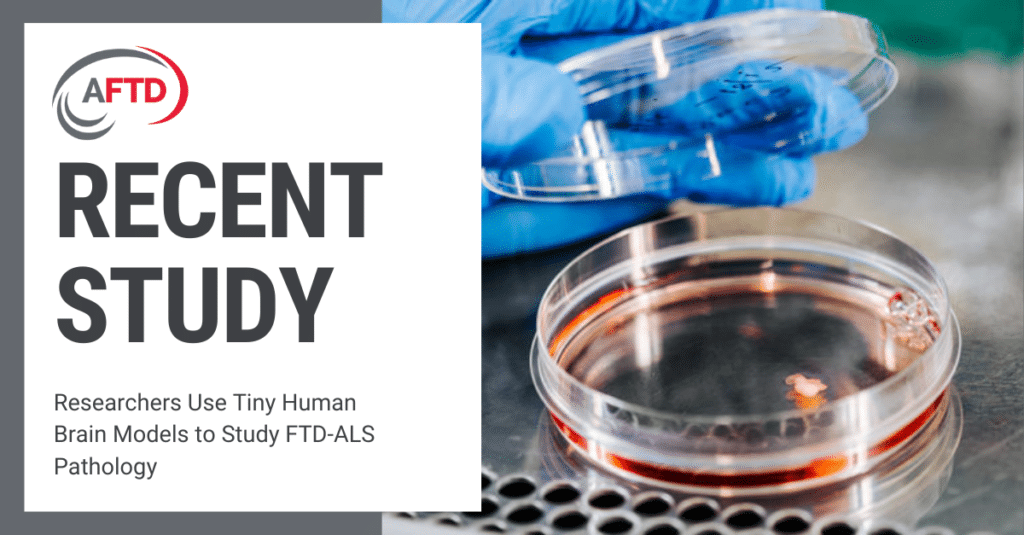Researchers Use Tiny Human Brain Models to Study FTD-ALS Pathology

Scientists from the University of Cambridge have developed a way to study the molecular pathology of FTD with amyotrophic lateral sclerosis (ALS) by using laboratory-grown, miniature brains.
In a recent study published in Nature Neuroscience, researchers developed mini human brain models, or cerebral organoids, to learn how to treat persons diagnosed with FTD and ALS. These brain organoids biologically exhibit some of the same traits as fully grown brains and resemble the human cerebral cortex.
The researchers grew the organoids to have the genetic mutations most commonly associated with ALS-FTD. As the disease progressed, scientists were able to learn which brain cells were affected earlier on. The findings also determined the efficacy of developing a long-term human cortical organoid model that closely replicates the early molecular pathology of ALS-FTD. The Cambridge team found a way to keep brain organoids alive for as long as 240 days, an uncommon life expectancy for organoids.
One drug used in the study, GSK2606414, proved to be useful in relieving cell stress and death caused by ALS-FTD. Study co-author András Lakatos, a neuroscientist at the University of Cambridge, said in an Oct. 21 article published in the Daily Beast that the “findings hint that an early multi-target strategy may be required for a more optimal treatment strategy [for ALS-FTD].”
By Category
Our Newsletters
Stay Informed
Sign up now and stay on top of the latest with our newsletter, event alerts, and more…
